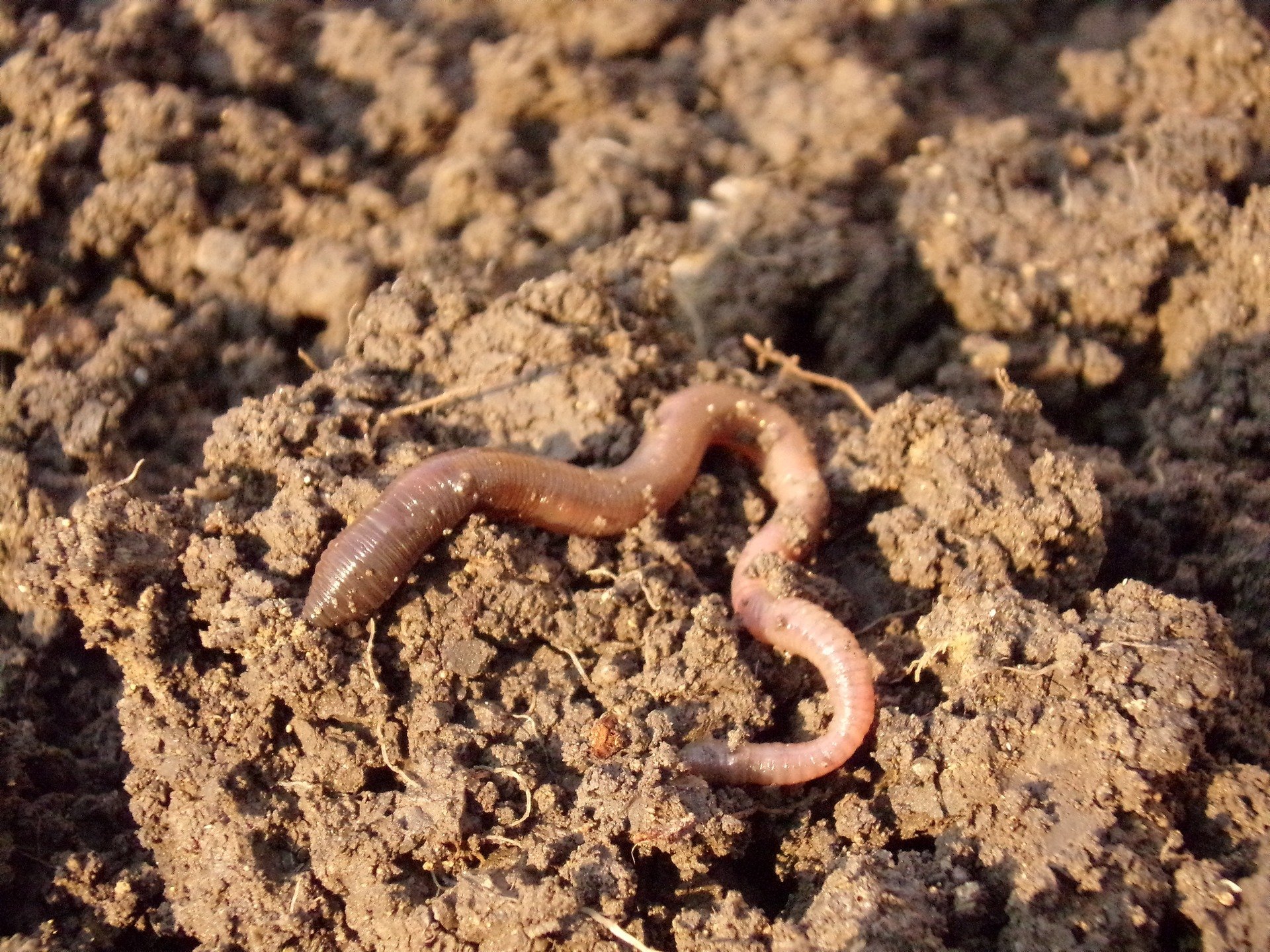Can you hear the earthworms snacking?

Behind the scenes - the invisible work of the earthworm
The unpaid helpers are simply priceless
When we think of species conservation, images of endangered rhinos, panda bears, and now insects or birds often come to mind but living creatures in the soil are also directly threatened by climate change and intensive land use and need to be protected. The daily work of all these invisible helpers underground is the basic prerequisite for all further life on the earth's surface.
The earthworm - threatened and essential for survival
In addition to the bees, which are currently the talk of the town and the subject of a wide variety of campaigns, it is above all the earthworm that is indispensable for agriculture. On average, there are 1000 kg of earthworms on one US hectare of land. With only 18 kg of biomass, comparatively few people live in the same area and yet the earthworm is threatened?
Let's try another comparison: On a square meter of soil there are about 9 grams of earthworms living down to the depth of a spade, which is 90 kg of earthworms per hectare. Under a conventionally managed pasture it is already 49 grams. In organic garden soil, on the other hand, up to 840 grams of earthworms dig their tunnels. With such a worm density, you can even hear the earthworms feeding above ground.
The earthworm works underground, tirelessly, unpaid
The importance of earthworms was already known in the 16th century. The naturalist Gilbert White wrote:
"Without the earthworms the earth would soon become cold, hard, and almost without any ferment, and consequently sterile."
And that's what makes earthworms so valuable: they primarily eat soil and the microorganisms it contains, as well as decaying organic matter, depending on the type of earthworm and its lifestyle. The soil is subjected to amazing transformation and upgrading processes in the worm's gut. The result is remarkable. It contains five times more nitrate, seven times more phosphorus, eleven times more potassium, two and a half times more magnesium and twice as much calcium as the soil it belongs to. Earthworm excrement also has an excellent C-N ratio of 10:1.
Through its glands, the earthworm releases lime, neutralizing humic acids. This maintains the acid-base balance in the soil and helps build permanent humus and a crumb structure.
But that's not all! The wormholes are not only valuable growth pathways for plant roots; the large pore volume of earthworm-rich soils also ensures good distribution of water and air. Experiments have shown that by introducing earthworms into test soils, water-holding capacity increased by 350 percent in one month. Earthworm-rich soils are also significantly less susceptible to erosion damage and the associated loss of fertile arable soil.
Intensive agriculture is not for the little miners
In today's cultivated soils, even after a long search, you often don't find any earthworms at all. What is the reason for this? The methods currently prevalent in agriculture simply have a devastating effect on the little critters. Liquid manure, especially excessive liquid manure, for example, poisons the worms directly. Other microorganisms are also severely restricted in their work. The annual deprivation of crops and the associated poverty of humus substances do not exactly favor the living conditions for the worms either. But what can be done to make life easier for the little helpers?
The usual suspects - crop rotation, humus management, rotting.
There are a few things that agriculture, for example, can do for earthworms. These include appropriate crop rotation, thoughtful humus management, and avoiding fallow. In addition, the use of water-soluble fertilizer salts should be reduced as much as possible. It is particularly important to avoid rotting. Stable manure, liquid manure and slurry must be subjected to rotting before application in order to make a truly valuable contribution to the soil.
Protecting earthworms saves energy and money
As strange as it sounds, protecting earthworms saves money in the end. Good and natural soil fermentation, which you can promote through the measures mentioned above, among others, drastically reduces the need for mineral fertilizer. Energy consumption for the difficult cultivation of heavy soils is also reduced. Where the humus content and thus the soil life, the fermentation state and the water balance are in order, and a rich earthworm population ensures good drainage, less traction and thus less fossil fuel is needed for mechanical soil cultivation than in structurally damaged arable soils.
So it pays to protect the little helpers that put so much effort into producing good soil.

